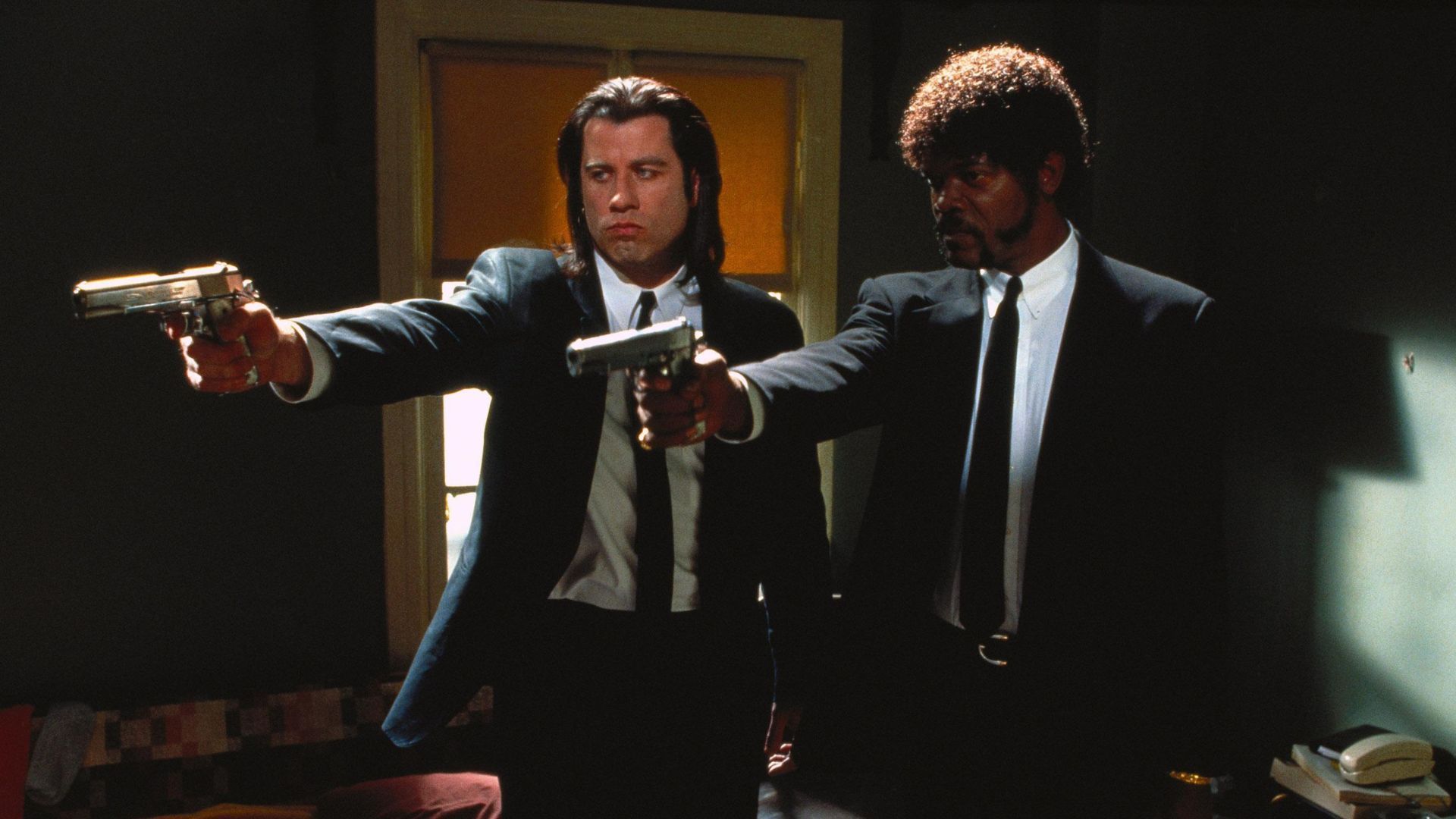

The Cannes Film Festival is officially back this year and right around the corner. And as we gear up for it, let us take you through a walk down memory lane to rediscover some of the best films that received top honours at one of the world’s most prestigious film festivals.
The first Festival de Cannes was held in 1946 in France. It recognised artistic excellence and showcased top-quality cinema to global audiences. The world’s glitziest and most influential cinematic event is held annually to honour great performances, exchange ideas, screen movies and identify fresh talent.
The film festival first served as a rendezvous for cinephiles and art enthusiasts during the 1940s. The event eventually catapulted to international fame and now promotes the development of the global movie industry and the craft of filmmaking. It also celebrates emerging talent across the world. Equivalent to the ‘Best Picture’ category at the Oscars, the festival has its own top award called the Cannes Palme d’Or.
The event is set to take place from 17 to 28 May 2022 at the Palais des Festivals convention centre in Cannes, France.
Here are some of the best Cannes films that have etched their place in cinematic history
Neecha Nagar (1946)
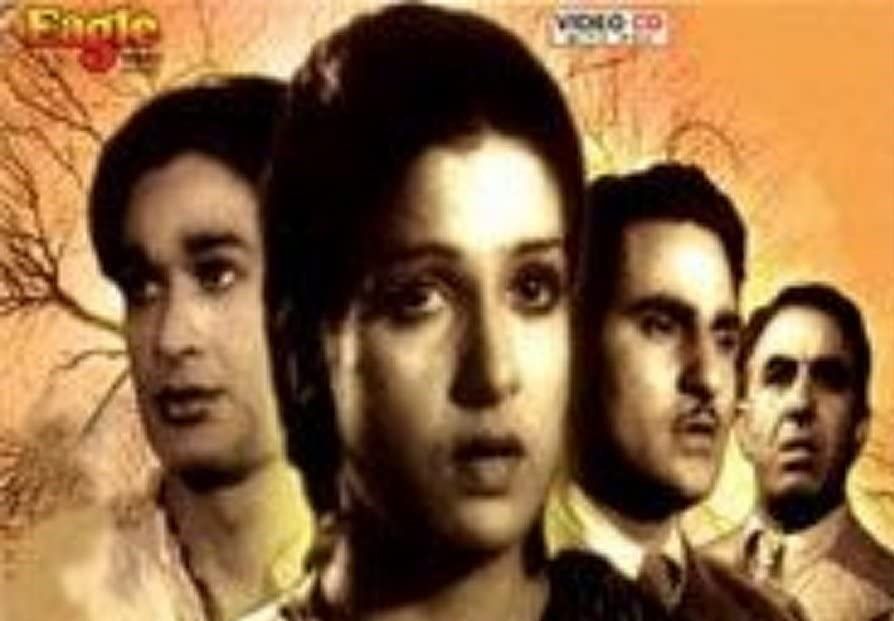
Before Satyajit Ray’s 1955 classic Pather Panchali placed Indian cinema on the global map, Chetan Anand’s Neecha Nagar (1946) had already made waves at the Cannes Film Festival and went on to win the Palme d’Or.
Serving as a satirical portal to 1940s India, when the country was on the verge of attaining freedom from the rule of the British, Neecha Nagar portrays a dark picture of the economic disparity prevalent in Indian society back then. The film brilliantly showcased the sparks of revolution the lower economic class launched against the injustices of the rich and powerful.
With a timeless theme, the film’s title is a signifier of the economic and political unrest in India in 1946. In the fictional town of Neecha Nagar, where ‘neecha’ refers to the place where the lower economic class resides, the youth have to fight against the folks from Ooncha Nagar, or the town situated uphill where wealthy people reside and enjoy a life of luxury.
A rich businessman, cleverly named Sarkar (meaning government), decides to reroute the open sewage canal that carries the filth from Ooncha Nagar and make it pass through Neecha Nagar. Despite facing vehement opposition from the townspeople, Sarkar executes it anyway.
When Neecha Nagar suffers through an epidemic brought on by the unhygienic living conditions and the sewage, Sarkar builds a hospital so he can exploit the people and earn even more money out of the misery that he created in the first place.
The cast includes Rafiq Anwar, Uma Anand, Kamini Kaushal, Rafi Peer, S.P. Bhatia and Mohan Saigal.
Taxi Driver (1976)
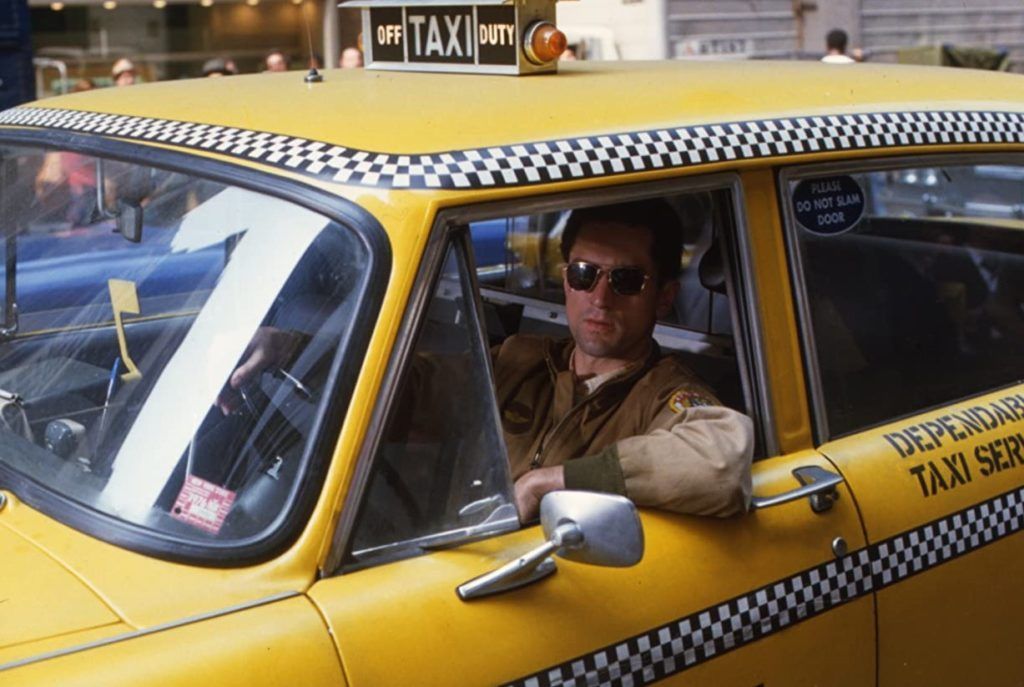
Martin Scorsese’s masterpiece Taxi Driver follows the life of the disturbed loner and Vietnam war veteran Travis Bickle (Robert De Niro), who takes up a job as a New York City cab driver, because of his insomnia. Written by Paul Schrader, the film paints an alarming and violent picture of a man’s plunge into mental illness and inner-city alienation.
As Travis continues haunting the city streets every night, becoming increasingly detached from reality, he starts fixating on getting justice against the despicable world, starting with New York City. On this journey, he meets a campaign worker, Betsy (Cybill Shepherd). This leads him to change his life goals, train for revenge and plot the assassination of the politician she is working for.
The movie highlights the pervasive and debilitating side effects of loneliness and isolation, which is an epidemic faced by contemporary society today. The supporting cast includes Harvey Keitel, Jodie Foster and Albert Brooks. Taxi Driver skillfully deep dives into how society can corrupt and be corrupted at the same time, for which it won the Palme d’Or at the 1976 Cannes Film Festival.
All That Jazz (1979)

Released in 1979, All That Jazz is a semi-autobiographical musical film based on American director, screenwriter and actor Bob Fosse’s life. The film, which was directed and co-written by Fosse himself, follows his own life story and the sordid career of his on-screen avatar, Joe Gideon (Roy Scheider), an infamous dancer.
The film offers an unfiltered version of an artist struggling to remain relevant and leave his mark on the industry in the face of his looming deadline. All That Jazz was inspired by the real-life events that took place when Fosse manically tried to balance editing his film Lenny (1974) and staging the 1975 Broadway musical Chicago at the same time.
In the film, we see Joe going through a life crisis due to his failing health and disappointing relationships, while working on what could be his very last Broadway production. The movie realistically portrays how the protagonist navigates life while facing the consequences of his hedonistic lifestyle and poor life choices.
In 1980, the Cannes jury headed by Kirk Douglas adjudged All That Jazz winner of the Palme d’Or along with Akira Kurosawa’s Kagemusha. The former also bagged nine nominations and four Oscars at the 52nd Academy Awards.
Sex, Lies, and Videotape (1989)
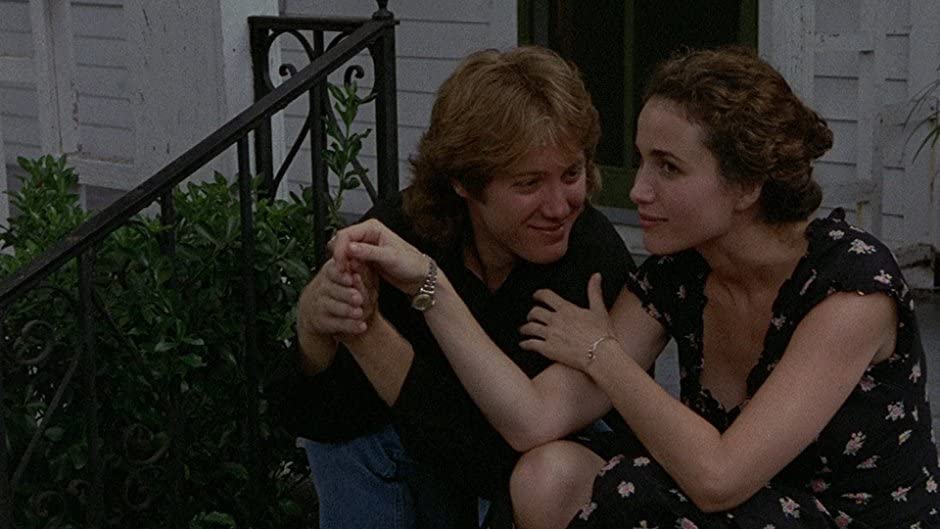
Another Palme d’Or winner in this list is Steven Soderbergh’s directorial debut Sex, Lies, and Videotape. Paving the way for independent films, Soderbergh explores the subtleties of sexuality, relationships and complex emotions juxtaposed against a bold and edgy storyline and dialogue through this movie.
In the film, Ann (Andie MacDowell) is the sexually and emotionally unfulfilled wife of John (Peter Gallagher), who is a rising young attorney in his 30s. While John is having an affair with Ann’s sister Cynthia (Laura San Giacomo), the delicate threads of their failing marriage further unravel with the arrival of the wild and uncompromising Graham (James Spader). A friend of John’s from college, Graham videotapes Cynthia and Ann as they confess their sexual desires.
The riveting tale took the then small-scale Sundance Film Festival by storm and changed its fate forever. At its Cannes Film Festival premiere, it won not just the Palme d’Or but also the Best Actor and International Critics Award. The movie aged wonderfully and remains relevant to the current era, where lines between intimacy and confidentiality are blurred.
Pulp Fiction (1994)

The Quentin Tarantino film, Pulp Fiction, follows the intertwined occurrences in the lives of two Los Angeles hitmen Vincent Vega (John Travolta) and Jules Winnfield (Samuel L. Jackson), a gangster’s actress wife Mia Wallace (Uma Thurman), a struggling boxer Butch Coolidge (Bruce Willis), two petty criminals Pumpkin and Honey Bunny (Tim Roth and Amanda Plummer, respectively) and a master fixer called The Wolf (Harvey Keitel).
The film follows Vincent and Jules, who are working for mob king Marsellus Wallace (Ving Rhames), with a penchant for philosophical discussions and musings about life.
Tarantino weaves together seemingly disconnected incidents and highlights the choices each character makes regarding life, death, honour and disgrace. All the characters in the film helped shape the multi-layered collection of short crime stories in this cult-favourite movie.
Full of post-modern quirks and brash, witty dialogues, the film expertly humanises nefarious characters, invoking an emotional response from audiences. Tarantino and Roger Avary won an Oscar for the film in the Best Writing, Screenplay Written Directly for the Screen category.
Pulp Fiction completely transformed the course of modern filmmaking and inspired a slew of imitators over the years after its release. The movie won the Palme d’Or at the 1994 Cannes.
Taste of Cherry (1997)
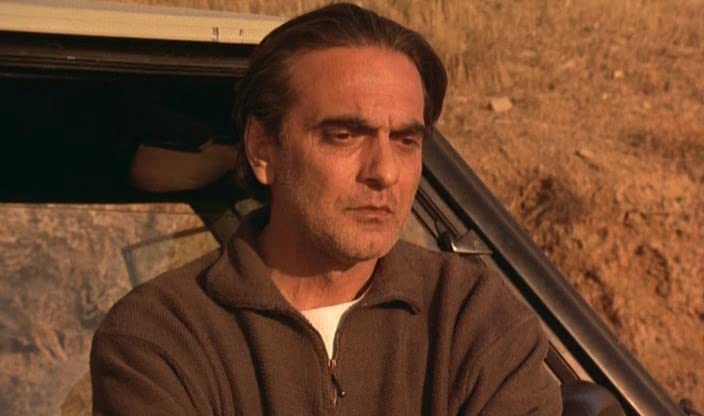
In this bleak and contemplative Cannes movie made by Iranian filmmaker Abbas Kiarostami, a middle-aged, suicidal Tehranian man, Mr Badii (Homayoun Ershadi), ventures out in search of someone who would bury his body after he kills himself. While driving around the city in his Range Rover, he has many encounters with people, including a Muslim student (Mir Hossein Noori).
Just as he is about to give up on his quest, the seemingly well-to-do Badii comes across a man who agrees to complete the task because he desperately needs money. However, his new associate soon tries to talk him out of committing suicide.
Throughout the film, Badii reflects on his own life through interactions with various people he meets along the way. Full of post-modern twists and witty quirks, Taste of Cherry is the first and only film to win the Cannes Palme d’Or by an Iranian filmmaker.
Blue Is The Warmest Color (2013)
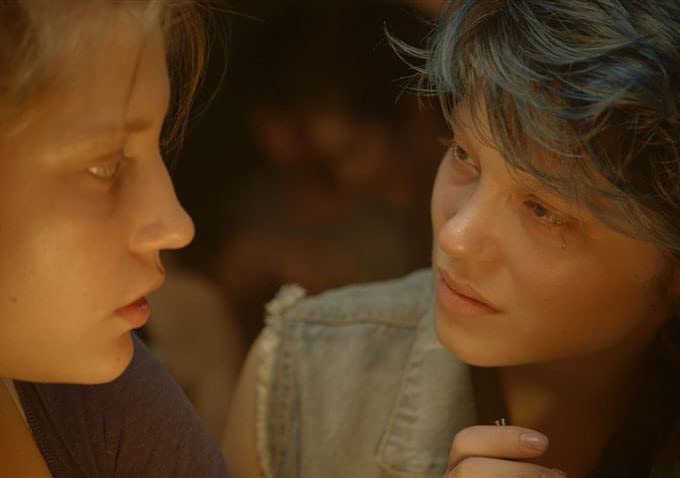
Based on Julie Maroh’s French graphic novel, published in 2010, Blue Is The Warmest Color is a coming-of-age teen drama about a French girl who falls in love with a blue-haired artist. When Adèle’s (Adèle Exarchopoulos) openly gay best friend takes her to a lesbian bar, she stumbles across Emma (Léa Seydoux) a punkish, free-spirited girl with electric blue hair and is instantly attracted to her.
Crackling with the energy of youth, rebellion and desire, she soon gets into a relationship with Emma. This tests the boundaries of her friendships, family, herself, and her sexual identity. Vividly illustrated and beautifully narrated, Blue Is the Warmest Color is a bittersweet story about the elusive and reckless nature of passionate love. The foreign-language film (French version) won the Cannes Palme d’Or in 2013.
The film garnered worldwide acclaim, along with its fair share of controversy, owing to the explicit scenes. Director Abdellatif Kechiche shared the award with actors Exarchopoulos and Seydoux.
Parasite (2019)
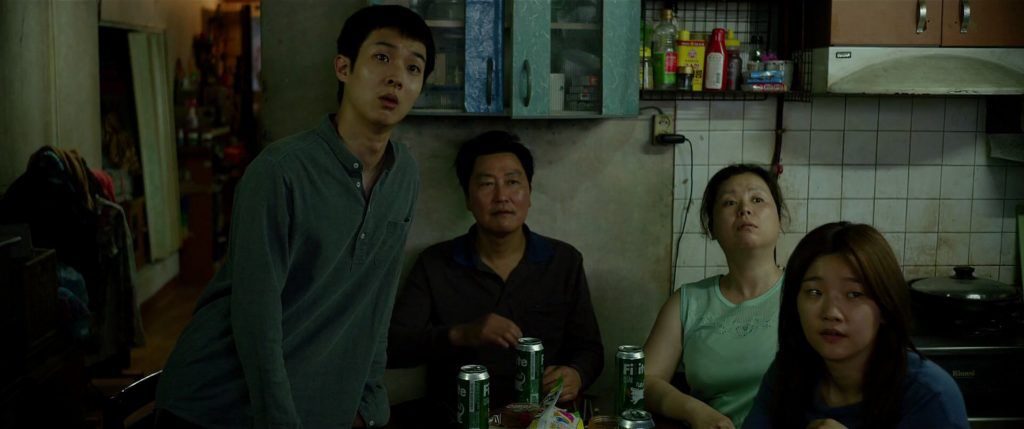
The Academy Award-winning South Korean film, directed by Bong Joon-ho, also won big at the Cannes Film Festival in 2019. The dark-comedy thriller film offers an anti-capitalist take on modern society, by portraying the wealthy as ‘parasitic’ and the working class as literally struggling to keep their heads above water.
Parasite follows the life of a poverty-stricken family, the Kims, who cunningly get themselves employed at the home of the Parks. In a jarring contrast, the Parks family is an immensely wealthy household. The family has also been unknowingly harbouring a stranger in their basement for years.
The brilliantly written film brutally highlights how people from the working or middle class are forced to go against each other, fighting for scraps. On the other hand, families like the Parks live a life of luxury, supported by the labour of the countless individuals working beneath them.
(Main and featured image credit: Pulp Fiction/© 1994 – Miramax./IMDb)
This article first appeared on Lifestyle Asia Kuala Lumpur.
The post 8 of the best Cannes Palme d’Or winners appeared first on Lifestyle Asia Bangkok.

